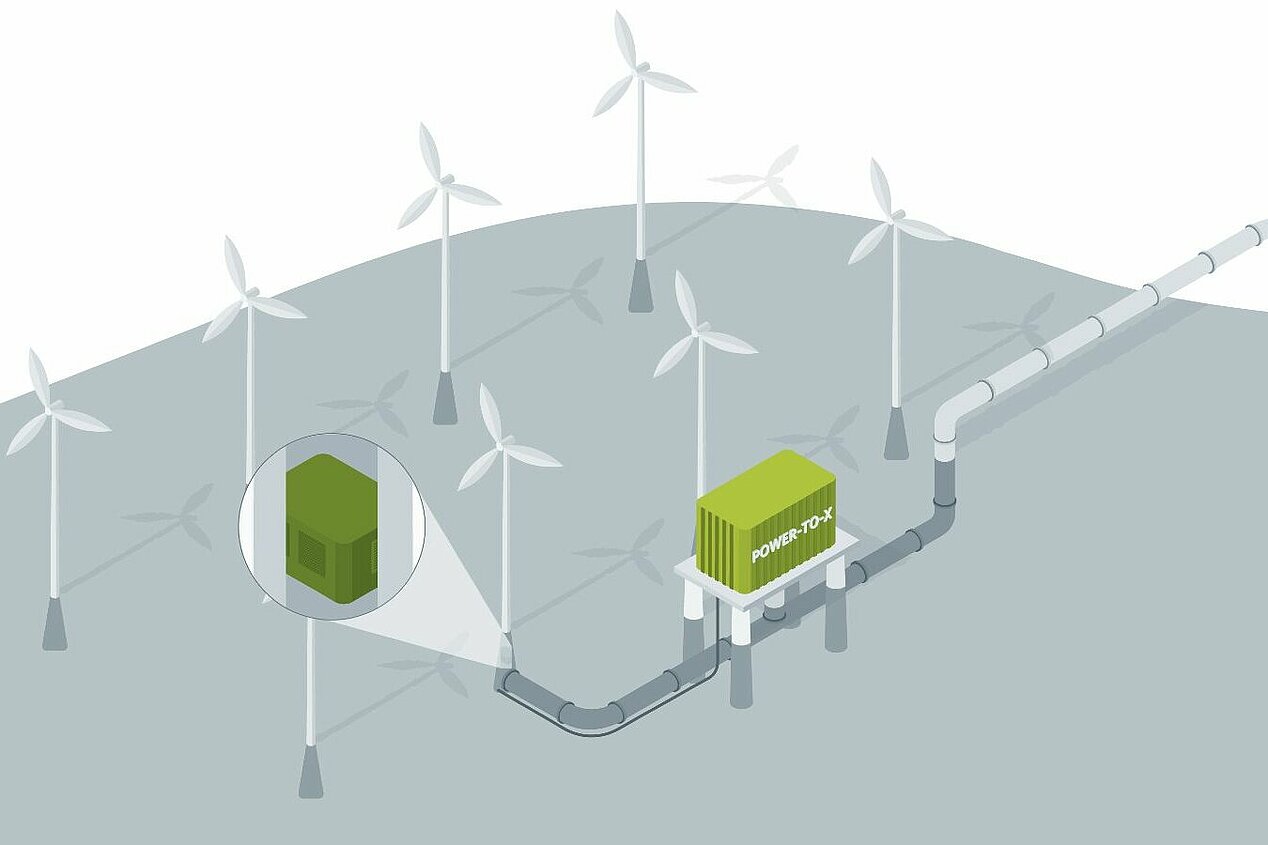

15. October 2021
The DVGW supports the gas and water industry in all technical and scientific areas. The main focus of the Association’s work is on safety and hygiene as well as environmental and consumer protection. The DVGW elaborates technical rules designed to promote the technical self-management of the German gas and water industry, thus ensuring the safe and secure supply of gas and water according to the highest international standards. The Association, which was founded in 1859, currently has approximately 14,000 members. The DVGW is free from economic and political influences.
www.dvgw.de/english-pages

15. October 2021
H2Mare lead hydrogen project
BMBF H2Mare lead project launched
Offshore wind turbines generate significantly more and more regularly electricity than their onshore counterparts: for instance, the average nominal power of onshore wind turbines is around 3.5 megawatts, compared to 5 megawatts for offshore turbines. The H2Mare lead hydrogen project wants to exploit this potential by using renewable electricity directly offshore to produce hydrogen and hydrogen reaction products.
The future partners want to integrate the water electrolyser directly into a wind turbine and supply innovative technologies to produce green hydrogen offshore. Combining the wind turbine and electrolyser is expected to minimise the costs of hydrogen production. This is because eliminating the connection to the electricity grid can significantly reduce infrastructure costs. What’s more, disconnecting electrolysis from the grid relieves the strain on local grid structures. Another benefit of offshore hydrogen production is the significantly greater potential space for generating wind energy than onshore.
Due to the numerous benefits of offshore production, H2Mare is also working on solutions for using green hydrogen to directly produce reaction products, such as green methanol or green ammonia—offshore Power-to-X. For this to succeed, the partners also want to continue advancing innovative approaches, such as watervapour electrolysis and seawater electrolysis. What’s more, Power-to-X products require carbon and nitrogen as input materials, which are expected to be extracted from the air or seawater. The project also expects to provide answers to unresolved questions concerning safety and possible environmental effects as well as on life cycle analyses and technology evaluations.